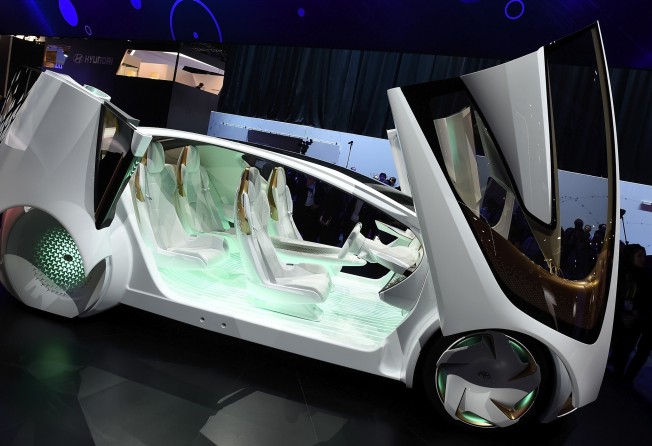
Hi-tech disruptors vs industry stalwarts: who will win the race to dominate the driverless-car market?

With initiatives on autonomous cars heating up around the world, longstanding players in the automotive industry and new hi-tech disruptors may soon need to reconcile how each side is navigating the way forward for self-driving vehicles.
That potential scenario emerged during a panel discussion about autonomous driving on Wednesday at the Rise technology conference, where senior executives from Japanese companies Mazda Motor Corp, Yamaha Motor Company and Honda Motor Company shared their recent initiatives.
“We are trying to meet all your needs in driving,” said Nick Sugimoto, the chief executive at Honda R&D Innovations in California’s Silicon Valley, as he noted a long development cycle.
It is a conservative goal echoed by both Mazda senior managing executive Kiyoshi Fujiwara and Hiro Saijou, the chief executive at US-based Yamaha Motor Ventures & Laboratory Silicon Valley.

“We aim to combine the convenience and the joy of the driving experience,” said Fujiwara. He pointed out that this strategy represents Mazda’s motto: “Be a driver”.
Yamaha’s Saijou said initiatives to improve the driving experience have increasingly involved partnering with entrepreneurs who are developing novel hardware systems and services.
“Innovation is a team sport,” he said. “Whether investment, partnership, or both, we work collaboratively to create the future of industries, ranging from personal transportation to industrial automation.”
Whether investment, partnership, or both, we work collaboratively to create the future of industries, from personal transportation to industrial automation
Yamaha Motor Ventures has invested in a company called Veniam, which is developing an “internet of moving things” that involve networks of connected vehicles and managed services to support its users.
In comparison, plenty of start-ups now positioning themselves to disrupt the automotive industry are rushing to deliver an array of innovation that could likely overwhelm the elderly, the sick or physically handicapped segment of the car market.
Those include so-called augmented reality applications seen on the vehicle’s screen and various cloud computing services, all designed to provide navigation, information, entertainment and connectivity to extend office work on the road.
A host of automotive industry stalwarts, telecommunications companies and technology heavyweights are investing heavily in autonomous driving research and development, according to venture capital database service CB Insights.
“We identified 44 companies developing self-driving vehicles,” it said.
Chinese online search giant Baidu announced last week that autonomous driving platform, dubbed Project Apollo, boasts a development cycle of days, not years. Its 50 partners include Chinese carmaker Chery Automobile Company, Germany’s Daimler and US software firm Microsoft.
Apollo is expected to launch in cars for simple intra-city scenarios by December this year and all-scenarios driving — including high-speed road and intra-city — by December 2020, according to an HSBC research report.
Which side of the self-driving car sector ultimately races ahead to capture the market’s attention remains to be seen.